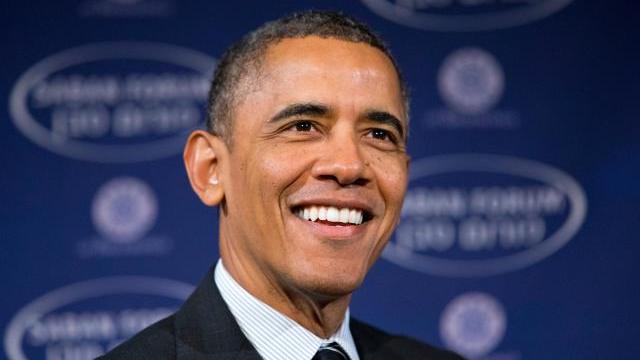 (AP photo)
(AP photo)
Tadias Magazine
By Tadias Staff
Updated: Sunday, May 4th, 2014
New York (TADIAS) — A year ago, as President Obama worked to solidify his foreign policy team for his second term, a timely question was raised by The Chicago Council on Global Affairs: Is “President Obama’s Africa Policy Just Right or Not Enough?”
“No one, not even President Obama himself, is likely to say that his administration’s policies towards Africa is ‘just right,’” answered Richard Joseph, the John Evans Professor of international history and politics at Northwestern University and a member of the Board of Directors of The Chicago Council on Global Affairs. “So the first response to today’s question is easy, not enough.”
“Now how do we determine what is enough?” he added. “There [are] four factors to consider, each of which is an evolution. First, the global system. Secondly, America today as reflected in contentious Washington politics, which you are very familiar, the evolution of Barack Obama himself, his vision for the presidency and his legacy. And then third, what is happening in the very diverse 49 states in Sub-Saharan Africa, a continent in which 3 of 5 states in North Africa (Egypt, Tunisia and Libya) are undergoing a complex and uncertain transitions.” (Not to mention that presently 11 of the top 20 best performing economies in the world are located in the region).
Fifteen months later — notwithstanding China’s rapidly growing influence in the continent — it’s still worth asking: “What do the current trends in Africa imply for American economic and national security? And will President Obama need to alter current American policy toward Africa?”
During his trip to Ethiopia last week U.S. Secretary of State John Kerry was pointedly asked by a reporter if he was “serious” or just “paying lip service” to issues of human rights and jailed journalists in Ethiopia. “So these things are repeating very much from the times of Eskinder Nega and others to our young brothers,” the reporter said. “So is it lip service, or are you seriously concerned about the arrests? Because these guys are social activists using the social media, they were advocating freedom, democracy, and participation as a citizen. So we really demand a genuine answer from you.”
Kerry responded: “Well, when I stand up in public, and I say something, I try to be serious about it, and I think the fact that I’m doing that is serious. And when I raised him by name in my comments today, I am raising a very legitimate concern. We are concerned about any imprisoned journalist here or anywhere else. And we raise this issue elsewhere. And we believe that it’s very important that the full measure of the constitution be implemented and that we shouldn’t use the Anti-Terrorism Proclamations as mechanisms to be able to curb the free exchange of ideas. And in my meetings with all public officials, I will always press the interests of the political space being opened up and being honored. And so we have previously called for the release of these individuals, and that is the policy of our government, and it’s a serious policy.”
In a recent article entitled In choosing Security Over Democracy in Ethiopia, US Will Get Neither (published on Aljazeera), Hassen Hussein points out that Kerry “came to a country rocked by mounting student protests against the government and vicious military crackdowns that left scores dead and wounded, as well as the troubling imprisonment of dissident journalists and bloggers. To his credit, Kerry raised concerns about the tightening of press freedom in Ethiopia. “I made clear to Ethiopian officials that they need to create greater opportunities for citizens to be able to engage with their fellow citizens and with their government by opening up more space for civil society,” Kerry told reporters in Addis Ababa.”
Hassen succinctly puts it: “Washington has shied away from seriously engaging Ethiopian authorities on the need for genuine democratization. Without the latter, the country’s extended prosperity is in danger. “To support economic growth for the long term, the free marketplace of ideas matters just as much as free markets,” Kerry noted in his remarks. But he failed to underscore how rising instability could erode Ethiopia’s standing as a linchpin to the otherwise volatile Horn of Africa region’s stability and damage its newly minted image as an emerging economic powerhouse.”
—
Related:
Al Jazeera: In choosing Security Over Democracy in Ethiopia, US Will Get Neither
Full Transcript: Secretary of State John Kerry’s Comments to the Press in Ethiopia
President Obama’s Africa Policy: Just Right or Not Enough? (Audio: The Chicago Council)
Kerry Urges Press Freedoms for Ethiopia (AFP)
Join the conversation on Twitter and Facebook.

























